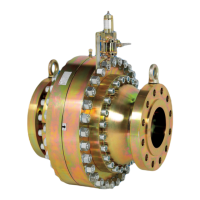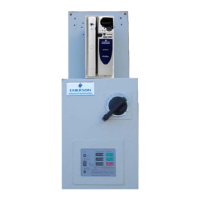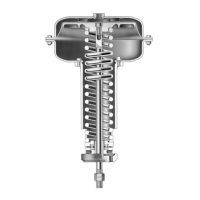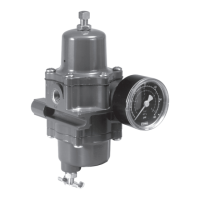FloBoss™ S600+ Flow Computer Modbus Specification Manual
D301904X012
June 2024
5
Configuration has two parts:
Link Configuration
This step defines the data link’s port or socket, its master or slave status, and
whether it uses RTU, ASCII, or Modbus TCP. You enter this information using
Config600 when the link is initially assigned, but the link configuration can be
modified later if required.
Map Configuration
This step assigns database points and fields to Modbus coils, inputs and registers
using a text file created using Config600’s Modbus Editor. Changes to the Modbus
map must be performed offline and the modified configuration downloaded to the
FloBoss
S600+ for the changes to take effect.
4.2 Master
In master mode, the device communicates with up to 10 slaves on a single-drop link. You
can configure several masters if necessary.
4.3 Slave
In slave mode, the device waits for polls from an external master and responds to polls
when they are requested. You can define several slaves if necessary. The slave address is
configurable per link, so a single FloBoss
S600+ can have several slave addresses if
required.
Section 5. RTU/ASCII Protocol
The FloBoss
S600+ fully supports both RTU Modbus and ACSII Modbus. A single
configuration switch enables you to select one or the other. Other communication
parameters exist independently of the ASCII/RTU switch.
RTU Mode
In RTU mode, you must configure the link for 8 data bits. No message header or
trailers are included. The checksum is the 16-bit CRC specified in the Modbus
specification.
ASCII Mode
In ASCII mode, you would normally configure the link for 7 data bits, although the
FloBoss
S600+ also supports 8 data bits. The message starts with the ASCII Modbus
start character (the colon, or “:”). The checksum is the 8-bit LRC defined in the

